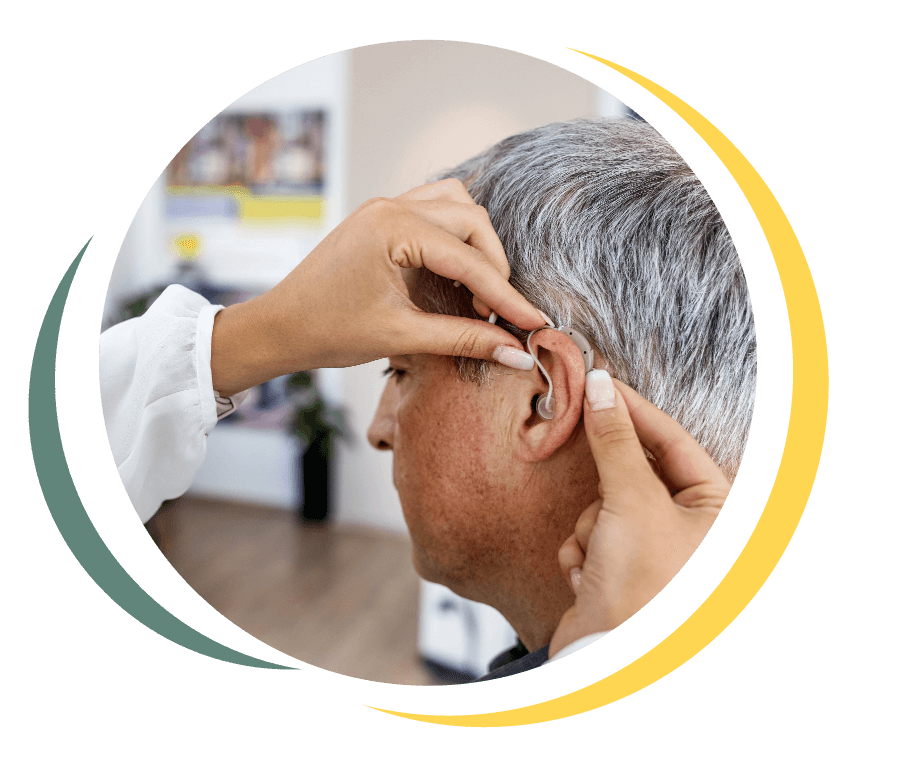
Hearing Aids in Altamonte Springs
Hearing aids are medical devices regulated by the FDA that are designed to provide amplification and clarity to those with hearing loss. Technology continues to evolve and now hearing aids are incredibly advanced. From Bluetooth hearing aids that can connect to your smartphone to rechargeable devices that don’t require battery changes, there is a hearing aid for every need.
As an independent, locally owned family hearing aid center, we have the ability to work with all of the major hearing aid companies.
Hearing Aid Styles
We carry all styles of hearing aids for sale, including the following:
Receiver-in-Canal (RIC)
RIC hearing aids are reliable and convenient. These have a lightweight feel to them and a flexible fit.
Behind-the-Ear (BTE)
BTE hearing aids put you in control with customizable fit options, wireless connectivity, and easy volume control.
Completely-in-Canal (CIC)
CIC hearing aids are sleek and subtle. This technology is molded to the unique contours of your ear for a superior fit that offers a natural look and hearing experience.
In-the-Canal (ITC)
ITC hearing aids are discreet and have a glasses-friendly fit with external controls.
In-the-Ear (ITE)
ITE hearing aids are custom molded for you. They are powerful and comfortable, allowing for all-day use.
Invisible-In-the-Canal (IIC)
IIC hearing aids are the smallest hearing instrument available. These are for people who want ultimate discretion while benefiting from the natural acoustics of the external ear.
Which Hearing Aid Is Right for You?
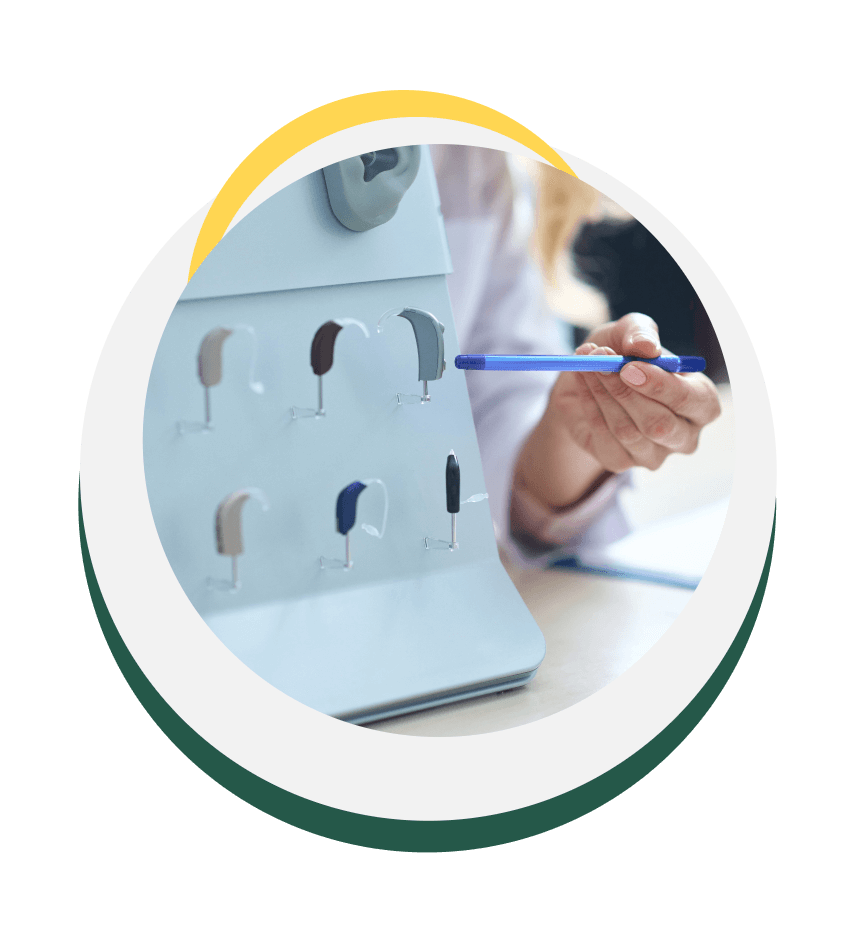
Everyone has different needs. When recommending a hearing aid, we will look at your degree of hearing loss, lifestyle, budget, and technological interests.
1.
- Degree of Hearing Loss: Hearing loss is measured in varying degrees: mild, moderate, moderately severe, severe or profound. More severe hearing losses will require a higher level of technology.
2.
- Lifestyle: Your profession, hobbies, social activities, and daily routines are all important factors to consider when determining what kind of hearing aid will best help you.
3.
- Budget: Hearing aids are available in a wide range of prices. We will work with you to determine what fits within your budget and matches your unique needs.
4.
- Technological Interests: Rechargeability, wireless connectivity, digital noise reduction, and automatic environmental optimizers are just some of the incredible features hearing aids have today.
We carry a wide range of top-rated hearing aids from the major manufacturers. Our hearing specialist will work with you to find the right device that matches all of your needs and preferences.
Hearing Aid Models
At Altamonte Family Hearing, we carry many hearing aid models.

Signia AX
Experience a brilliant fit with the new Signia AX hearing aids. Hear better in complex listening situations like outside on a windy day or talking in a noisy room. With the upgraded enhancements of the Augmented Xperience (AX) platform, you can hear even better with less effort. Signia AX comes in a full line of budget friendly options, making Augmented Focus split-processing technology widely more accessible. Enjoy a truly unique listening experience with Signia AX.
Additional features of Signia AX include:
- Bluetooth connectivity, health tracking, and Signia app
- Outstanding speech clarity in a variety of environments
- Upgraded eWind Screen
- Improved AX Soundscape Processing

Life-Changing Innovation from Oticon
Oticon Intent™
Facing the daily challenge of hearing conversations in noisy environments can be difficult for individuals with hearing loss. Traditional hearing aids understand sound, but not you. Oticon Intent™ is the first hearing aid that understands what you want to listen to.
Using revolutionary BrainHearing™ technology, Oticon Intent™ uses your movements, the environment, and the conversation around you to recognize what you want and need to listen to, adapting seamlessly to deliver truly personalized support. With Bluetooth connectivity and rechargeable power, Oticon Intent™ offers life-changing benefits.*
Benefits of Oticon Intent™:
- Clarity: Hear more clearly, stay more engaged, and enjoy life fully
- Confidence: Feel confident in every moment, from navigating the room to talking with a group of friends
- Cognition: Helps keep your mind focused, alert, and engaged with what matters most
*Expected use time for rechargeable battery depends on use pattern, active feature set, hearing loss, sound environments, battery age and wireless accessories.
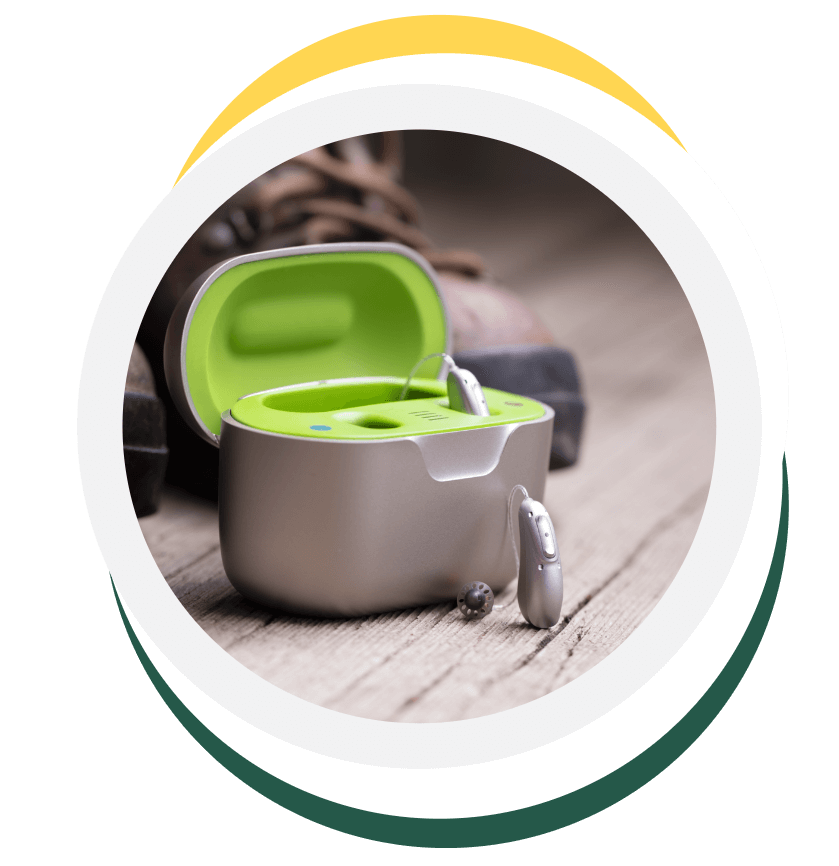
Phonak Audéo Lumity
Introducing Audéo Lumity, featuring unique Phonak SmartSpeechTM Technology for improved speech understanding. Fully immerse yourself in conversations around you and enjoy easier hearing in many situations.* SmartSpeechTM Technology is a unique collection of features, designed to deliver the benefits of improved speech understanding and reduced listening in various listening environments.
With Phonak Lumity, you can connect with the world around you. Lumity is compatible with iOS and Android smartphones, TVs, Roger devices, and wireless accessories. This hearing aid comes in a rechargeable choice, a variety of tyles, colors, and a waterproof option. Give your hearing a boost with Phonak Audéo Lumity.
*Appleton, J. (2020) AutoSense OS 4.0 – significantly less listening effort and preferred forspeech intelligibility. Phonak Field Study News retrieved fromwww.phonakpro.com/evidence, accessed August 2022.

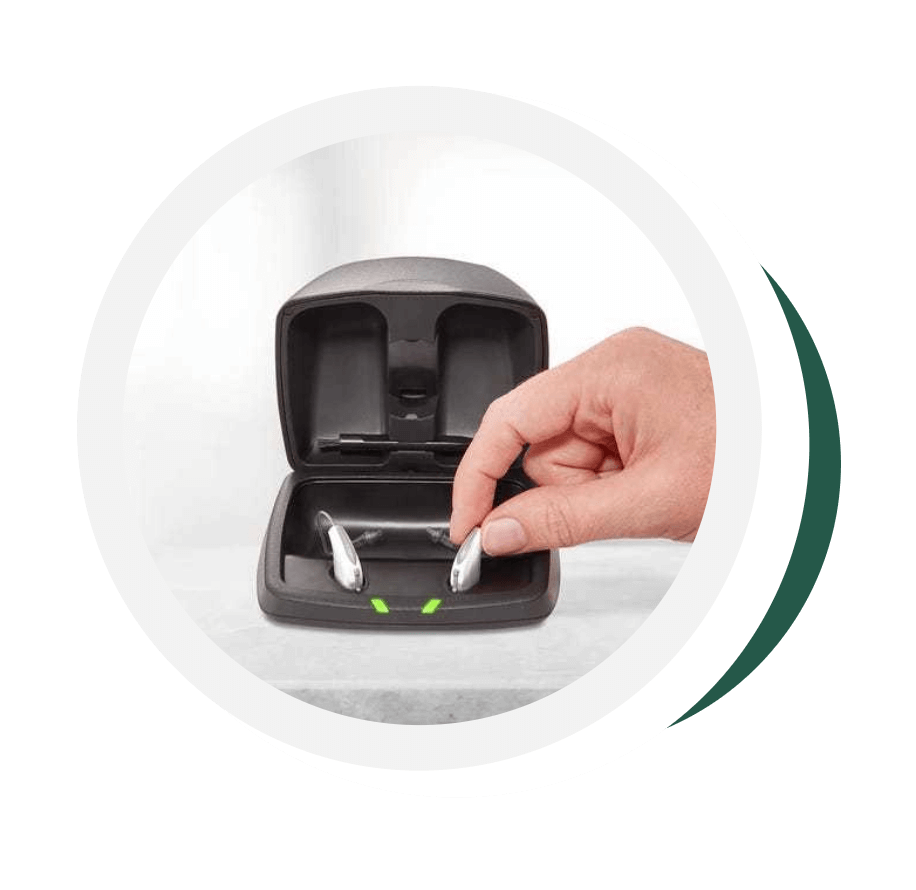
Starkey Genesis AI
Experience a new beginning for better hearing with Starkey Genesis AI hearing aids. The all-new Genesis AI hearing aid mimics the cerebral cortex of the brain to fill in the gaps quickly and accurately when our hearing is impaired. The Genesis AI is packed with the most sophisticated technology, to deliver a more true-to-life sound quality than ever before. Designed to help wearers hear soft sounds, you can now hear with less effort. Experience the best performing hearing aids for yourself with Genesis AI!
Additional features of Genesis AI include:
- Discreet, ergonomic design
- All-day rechargeability
- Built-tough durability
- Versatile connectivity

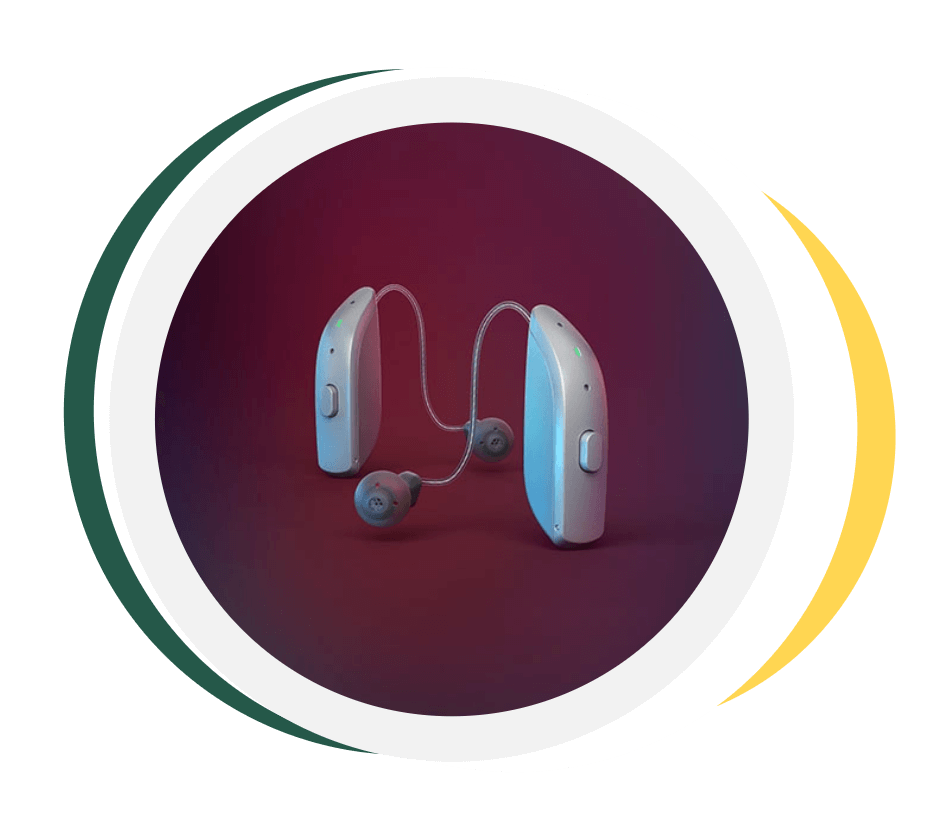
ReSound OMNIA
Naturally listen to who and what you want to with the newest hearing aids for mild to severe hearing loss and surround yourself with what you love. ReSound OMNIA allows you to hear your best in noise and to enjoy sounds from all around you. Hear speech better at family dinners or celebrations and hear the important details around you with the best speech understanding in noise from ReSound.
ReSound OMNIA has Bluetooth capabilities and can connect straight to your iPhone, iPad, or AndroidTM smartphones. Using Organic HearingTM, ReSound’s unique approach to creating hearing solutions that sound natural, allows you to feel connected to the world around you. Love the sounds in your everyday life with ReSound OMNIA.

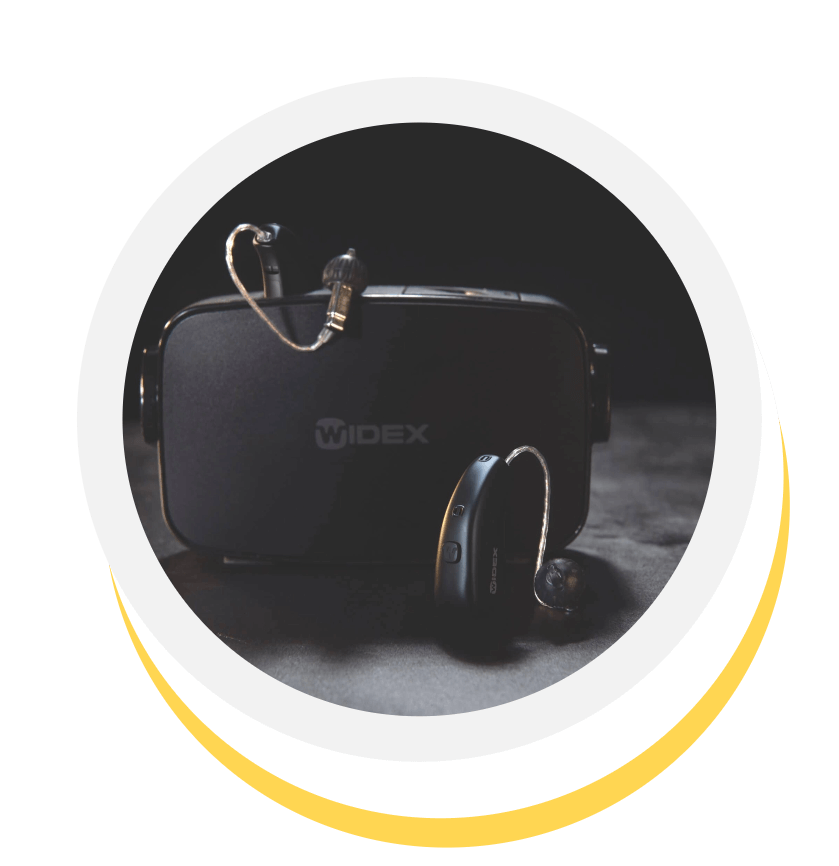
Widex MOMENT
Widex has a hearing aid that has changed the game to deliver a more pure, natural sound: the Widex MOMENT. With the Widex MOMENT you will be able to hear sound naturally. The Widex MOMENT is conveniently rechargeable and even designed to withstand moisture. Hear life clearly, with the Widex MOMENT.







